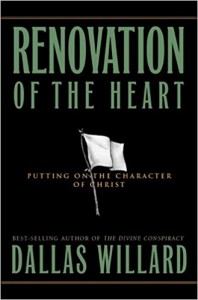
Genesis 30
25 As soon as Rachel had borne Joseph, Jacob said to Laban, “Send me away, that I may go to my own home and country. 26 Give me my wives and my children for whom I have served you, that I may go, for you know the service that I have given you.” 27 But Laban said to him, “If I have found favor in your sight, I have learned by divination that the Lord has blessed me because of you. 28 Name your wages, and I will give it.” 29 Jacob said to him, “You yourself know how I have served you, and how your livestock has fared with me. 30 For you had little before I came, and it has increased abundantly, and the Lord has blessed you wherever I turned. But now when shall I provide for my own household also?” 31 He said, “What shall I give you?” Jacob said, “You shall not give me anything. If you will do this for me, I will again pasture your flock and keep it: 32 let me pass through all your flock today, removing from it every speckled and spotted sheep and every black lamb, and the spotted and speckled among the goats, and they shall be my wages. 33 So my honesty will answer for me later, when you come to look into my wages with you. Every one that is not speckled and spotted among the goats and black among the lambs, if found with me, shall be counted stolen.” 34 Laban said, “Good! Let it be as you have said.” 35 But that day Laban removed the male goats that were striped and spotted, and all the female goats that were speckled and spotted, every one that had white on it, and every lamb that was black, and put them in the charge of his sons.36 And he set a distance of three days’ journey between himself and Jacob, and Jacob pastured the rest of Laban’s flock. 37 Then Jacob took fresh sticks of poplar and almond and plane trees, and peeled white streaks in them, exposing the white of the sticks. 38 He set the sticks that he had peeled in front of the flocks in the troughs, that is, the watering places, where the flocks came to drink. And since they bred when they came to drink, 39 the flocks bred in front of the sticks and so the flocks brought forth striped, speckled, and spotted. 40 And Jacob separated the lambs and set the faces of the flocks toward the striped and all the black in the flock of Laban. He put his own droves apart and did not put them with Laban’s flock. 41 Whenever the stronger of the flock were breeding, Jacob would lay the sticks in the troughs before the eyes of the flock, that they might breed among the sticks, 42 but for the feebler of the flock he would not lay them there. So the feebler would be Laban’s, and the stronger Jacob’s.43 Thus the man increased greatly and had large flocks, female servants and male servants, and camels and donkeys.
Genesis 31
1 Now Jacob heard that the sons of Laban were saying, “Jacob has taken all that was our father’s, and from what was our father’s he has gained all this wealth.” 2 And Jacob saw that Laban did not regard him with favor as before.3 Then the Lord said to Jacob, “Return to the land of your fathers and to your kindred, and I will be with you.” 4 So Jacob sent and called Rachel and Leah into the field where his flock was5 and said to them, “I see that your father does not regard me with favor as he did before. But the God of my father has been with me. 6 You know that I have served your father with all my strength, 7 yet your father has cheated me and changed my wages ten times. But God did not permit him to harm me. 8 If he said, ‘The spotted shall be your wages,’ then all the flock bore spotted; and if he said, ‘The striped shall be your wages,’ then all the flock bore striped. 9 Thus God has taken away the livestock of your father and given them to me. 10 In the breeding season of the flock I lifted up my eyes and saw in a dream that the goats that mated with the flock were striped, spotted, and mottled. 11 Then the angel of God said to me in the dream, ‘Jacob,’ and I said, ‘Here I am!’ 12 And he said, ‘Lift up your eyes and see, all the goats that mate with the flock are striped, spotted, and mottled, for I have seen all that Laban is doing to you. 13 I am the God of Bethel, where you anointed a pillar and made a vow to me. Now arise, go out from this land and return to the land of your kindred.’” 14 Then Rachel and Leah answered and said to him, “Is there any portion or inheritance left to us in our father’s house? 15 Are we not regarded by him as foreigners? For he has sold us, and he has indeed devoured our money. 16 All the wealth that God has taken away from our father belongs to us and to our children. Now then, whatever God has said to you, do.” 17 So Jacob arose and set his sons and his wives on camels. 18 He drove away all his livestock, all his property that he had gained, the livestock in his possession that he had acquired in Paddan-aram, to go to the land of Canaan to his father Isaac. 19 Laban had gone to shear his sheep, and Rachel stole her father’s household gods. 20 And Jacob tricked Laban the Aramean, by not telling him that he intended to flee. 21 He fled with all that he had and arose and crossed the Euphrates, and set his face toward the hill country of Gilead. 22 When it was told Laban on the third day that Jacob had fled, 23 he took his kinsmen with him and pursued him for seven days and followed close after him into the hill country of Gilead. 24 But God came to Laban the Aramean in a dream by night and said to him, “Be careful not to say anything to Jacob, either good or bad.” 25 And Laban overtook Jacob. Now Jacob had pitched his tent in the hill country, and Laban with his kinsmen pitched tents in the hill country of Gilead. 26 And Laban said to Jacob, “What have you done, that you have tricked me and driven away my daughters like captives of the sword? 27 Why did you flee secretly and trick me, and did not tell me, so that I might have sent you away with mirth and songs, with tambourine and lyre? 28 And why did you not permit me to kiss my sons and my daughters farewell? Now you have done foolishly. 29 It is in my power to do you harm. But the God of your[c] father spoke to me last night, saying, ‘Be careful not to say anything to Jacob, either good or bad.’ 30 And now you have gone away because you longed greatly for your father’s house, but why did you steal my gods?”31 Jacob answered and said to Laban, “Because I was afraid, for I thought that you would take your daughters from me by force. 32 Anyone with whom you find your gods shall not live. In the presence of our kinsmen point out what I have that is yours, and take it.” Now Jacob did not know that Rachel had stolen them. 33 So Laban went into Jacob’s tent and into Leah’s tent and into the tent of the two female servants, but he did not find them. And he went out of Leah’s tent and entered Rachel’s. 34 Now Rachel had taken the household gods and put them in the camel’s saddle and sat on them. Laban felt all about the tent, but did not find them. 35 And she said to her father, “Let not my lord be angry that I cannot rise before you, for the way of women is upon me.” So he searched but did not find the household gods. 36 Then Jacob became angry and berated Laban. Jacob said to Laban, “What is my offense? What is my sin, that you have hotly pursued me? 37 For you have felt through all my goods; what have you found of all your household goods? Set it here before my kinsmen and your kinsmen, that they may decide between us two. 38 These twenty years I have been with you. Your ewes and your female goats have not miscarried, and I have not eaten the rams of your flocks. 39 What was torn by wild beasts I did not bring to you. I bore the loss of it myself. From my hand you required it, whether stolen by day or stolen by night. 40 There I was: by day the heat consumed me, and the cold by night, and my sleep fled from my eyes. 41 These twenty years I have been in your house. I served you fourteen years for your two daughters, and six years for your flock, and you have changed my wages ten times. 42 If the God of my father, the God of Abraham and the Fear of Isaac, had not been on my side, surely now you would have sent me away empty-handed. God saw my affliction and the labor of my hands and rebuked you last night.” 43 Then Laban answered and said to Jacob, “The daughters are my daughters, the children are my children, the flocks are my flocks, and all that you see is mine. But what can I do this day for these my daughters or for their children whom they have borne? 44 Come now, let us make a covenant, you and I. And let it be a witness between you and me.” 45 So Jacob took a stone and set it up as a pillar. 46 And Jacob said to his kinsmen, “Gather stones.” And they took stones and made a heap, and they ate there by the heap. 47 Laban called it Jegar-sahadutha, but Jacob called it Galeed. 48 Laban said, “This heap is a witness between you and me today.” Therefore he named it Galeed, 49 and Mizpah, for he said, “The Lord watch between you and me, when we are out of one another’s sight. 50 If you oppress my daughters, or if you take wives besides my daughters, although no one is with us, see, God is witness between you and me.” 51 Then Laban said to Jacob, “See this heap and the pillar, which I have set between you and me. 52 This heap is a witness, and the pillar is a witness, that I will not pass over this heap to you, and you will not pass over this heap and this pillar to me, to do harm. 53 The God of Abraham and the God of Nahor, the God of their father, judge between us.” So Jacob swore by the Fear of his father Isaac, 54 and Jacob offered a sacrifice in the hill country and called his kinsmen to eat bread. They ate bread and spent the night in the hill country. 55 Early in the morning Laban arose and kissed his grandchildren and his daughters and blessed them. Then Laban departed and returned home.
In the early 90s there was a Christian rock band named “Big Tent Revival.” They were great and they lasted around a decade producing a number of award-winning albums. They also happened to be one of the few bands that ever actually came through my hometown of Sumter, SC! Their big hit was a song called “Two Sets of Joneses.” It is a really catchy song that compares and contrasts two different young couples and the different paths they took in their lives.
This here’s a song about two sets of Joneses
Rothchild, Evelyn, Rueben, and Sue
And just for discussion through random selection
We’ve chosen two couples who haven’t a clue
Rothchild was lucky to marry so wealthy,
Evelyn bought him a house on the beach.
Rueben and Sue, they had nothing but Jesus
And at night they would pray that he would care for them each
And the rain, came down,
And it blew the four walls down
And the clouds they rolled away
And one set of Joneses, was standing that day
Evelyn’s daddy was proud of young Rothchild,
He worked the late hours to be number one
Just newlyweds and their marriage got rocky,
He’s flying to Dallas, she’s having a son.
Rueben was holding a Gideon’s Bible,
And he screamed “it’s a boy” so that everyone heard
And the guys at the factory took a collection,
And again God provided for bills he incured
And the rain, came down,
And it blew the four walls down
And the clouds they rolled away
And one set of Joneses, was standing that day
So what is the point of this story,
What am I trying to say
Well is your life built on the rock of Christ Jesus
Or a sandy foundation you’ve managed to lay
Well needless to say Evelyn left her husband
N’ sued him for every penny he had
But I truly wish that those two would find Jesus
Before things get worse than they already have
And the rain, came down,
And it blew the four walls down
And the clouds they rolled away
There’s two sets of Joneses
Which ones will you be?
Li de di, li de di, li de di, li de di
Li de di, li de di, li de di, li de di
Li de di. li de di, li de di, li de di di di di[1]
It was a cool song, especially that closing Li de di, li de di, li de di, li de di part! Ha! A lot of early 90s evangelical youth group kids were singing those li de di’s!
I thought about “Two Sets of Joneses” earlier this week when studying Genesis 30 and 31. Moses seems to be clearly “Two Sets of Jones-ing” Laban and Jacob. As these chapters unfold the contrast becomes greater and great, with Laban taking one path (the path of control, manipulation, and self-centeredness) and Jacob taking another (the path of trust and faithfulness). We have already seen that both Laban and Jacob, his nephew, are flawed people, like us all. They were both capable of deceit, for instance. Even so, as these verses progress, we see that Jacob has matured and is taking a different path, whereas Laban had built his life on a “sandy foundation he managed to lay.”
Let us “Two Sets of Joneses” our text and consider the contrast between these two men.

 Since I first read Cormac McCarthy’s
Since I first read Cormac McCarthy’s  Haggai 1
Haggai 1 Mark 15
Mark 15 WELCOME! This is your one-stop-shop for all things pertaining to the CBC Long Range Planning Committee proposal. This page is being hosted at Pastor Wyman’s personal website simply so that you can comment or ask questions below. Our goal is to make everything available on one page so that our members can be informed, up-to-date, and included in this important and exciting consideration. CBC members are encouraged to submit questions or comments through the comments section below and they will be answered in a timely manner. Thank you for your interest, your input, and, most of all, for your prayer!
WELCOME! This is your one-stop-shop for all things pertaining to the CBC Long Range Planning Committee proposal. This page is being hosted at Pastor Wyman’s personal website simply so that you can comment or ask questions below. Our goal is to make everything available on one page so that our members can be informed, up-to-date, and included in this important and exciting consideration. CBC members are encouraged to submit questions or comments through the comments section below and they will be answered in a timely manner. Thank you for your interest, your input, and, most of all, for your prayer! Exodus 32
Exodus 32 Dallas Willard’s
Dallas Willard’s  Exodus 31
Exodus 31